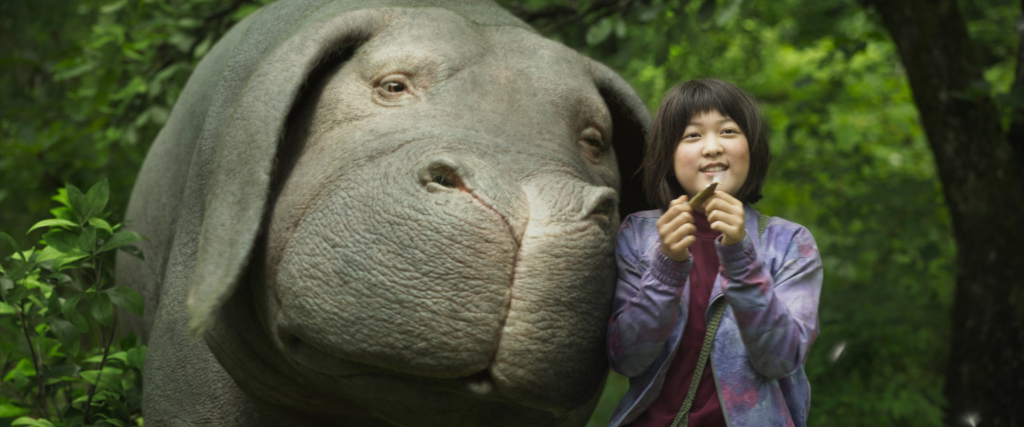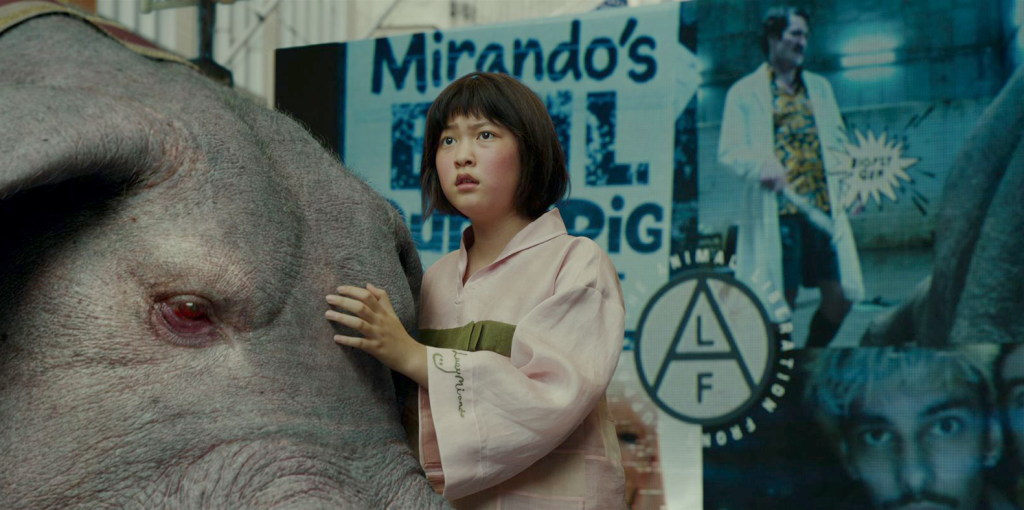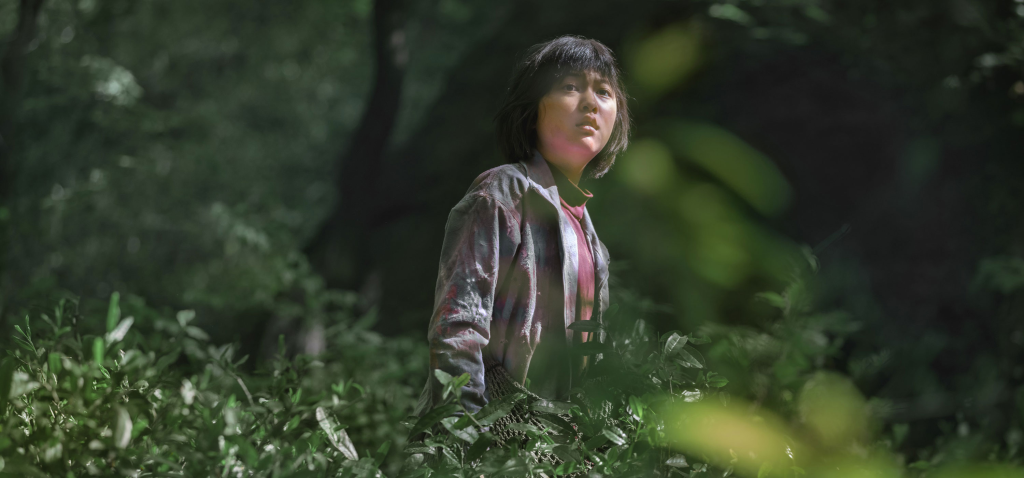Okja (2017) – A Heartfelt Tale of Friendship, Corporate Greed, and the Fight for Justice
Introduction: A Unique Blend of Emotion and Satire
“Okja” (2017) is a thought-provoking film directed by Bong Joon-ho, the visionary filmmaker behind Parasite (2019). This Netflix original blends adventure, drama, and social satire into a compelling story about a young girl and her genetically modified super pig, Okja. The film takes audiences on an emotional journey that questions corporate exploitation, environmental ethics, and the true meaning of love and friendship.
With a star-studded cast including Ahn Seo-hyun, Tilda Swinton, Jake Gyllenhaal, Paul Dano, and Steven Yeun, Okja is more than just a tale of a girl and her pet—it’s a critique of the modern food industry and capitalism, wrapped in a deeply touching narrative.
Plot Summary: A Bond That Defies All Odds
The story follows Mija (Ahn Seo-hyun), a young girl living in the mountains of South Korea with her grandfather and her beloved companion, Okja—a massive, genetically engineered super pig. Okja was given to Mija’s family as part of a global contest run by the Mirando Corporation, a powerful multinational company led by the eccentric Lucy Mirando (Tilda Swinton).

For ten years, Mija and Okja share an inseparable bond, exploring the wilderness and living in harmony. However, their peaceful life is shattered when Mirando’s representatives, led by the flamboyant TV zoologist Dr. Johnny Wilcox (Jake Gyllenhaal), arrive to reclaim Okja. They plan to transport the super pig to New York City for a grand public event before ultimately turning it into food.
Mija refuses to let Okja go and embarks on a daring rescue mission. Along the way, she encounters the Animal Liberation Front (ALF), an activist group led by Jay (Paul Dano), who seeks to expose Mirando’s cruel practices. As Mija ventures deeper into the corporate world’s darkness, she faces deception, corruption, and heartbreaking truths about the meat industry.

Themes and Symbolism: A Reflection on Society
1. The Power of Friendship and Love
At its core, Okja is a film about the deep, unconditional love between Mija and her animal companion. Their relationship mirrors the emotional connections humans share with their pets, making Okja more than just livestock—she is family. This bond drives Mija’s relentless fight against a system that sees Okja as a mere product.
2. Corporate Greed and Ethical Dilemmas
Bong Joon-ho masterfully critiques capitalism and corporate greed through the Mirando Corporation. Lucy Mirando presents herself as a progressive leader promoting “eco-friendly” solutions, but her true motives are profit-driven. This highlights the hypocrisy of many real-world corporations that prioritize image over ethics.

3. The Meat Industry and Animal Cruelty
The film doesn’t shy away from depicting the brutal realities of factory farming. Okja’s journey from the lush mountains to the sterile, dehumanizing slaughterhouse exposes the dark side of mass food production, forcing viewers to reconsider where their food comes from. The harrowing scenes in the slaughterhouse are a wake-up call, emphasizing the suffering behind industrialized meat consumption.
4. The Role of Activism
The ALF represents the fight for justice in an unjust world. While their methods are sometimes extreme, their cause is noble. The film raises questions about activism: How far should people go to fight against oppression? Can radical action bring real change, or does it only create more chaos?
Cinematic Excellence: Visuals, Acting, and Direction
Bong Joon-ho’s direction is both intimate and grand, blending breathtaking landscapes with intense action sequences. The CGI used to bring Okja to life is remarkable, making her feel real and emotionally expressive.
The performances are equally strong. Ahn Seo-hyun delivers a stunning performance as Mija, portraying resilience and innocence with depth. Tilda Swinton excels in her dual role as the Mirando twins, embodying both charm and sinister ambition. Jake Gyllenhaal’s eccentric portrayal of Dr. Johnny Wilcox adds a bizarre yet unsettling element to the film.

The cinematography captures both the beauty of nature and the cold sterility of the corporate world, reinforcing the film’s contrast between purity and corruption. Accompanied by an evocative musical score, Okja pulls viewers into its world with an emotional grip.
Impact and Reception: A Film That Stirs Conversations
Okja premiered at the Cannes Film Festival, receiving critical acclaim for its bold storytelling and social commentary. While some praised its emotional depth and humor, others found its graphic depictions of animal cruelty unsettling. However, this discomfort is intentional—Bong Joon-ho wants the audience to reflect on their own role in the food industry.
The film sparked discussions about veganism, ethical consumerism, and corporate deception. Many viewers found themselves questioning their dietary choices after watching Okja, proving that cinema has the power to influence real-world perspectives.
Conclusion: A Must-Watch Film with a Powerful Message
Okja is more than just a movie—it’s an experience that lingers long after the credits roll. It blends adventure, humor, and heartbreak to deliver a poignant message about love, ethics, and the consequences of unchecked capitalism. Whether you’re an animal lover, a film enthusiast, or someone who enjoys thought-provoking cinema, Okja is a must-watch.
Thank You & Explore More!
Thank you for reading! If you enjoyed this review, feel free to explore more articles about other fascinating films. Stay tuned for more insightful reviews and discussions on cinema! 🚀🎬
